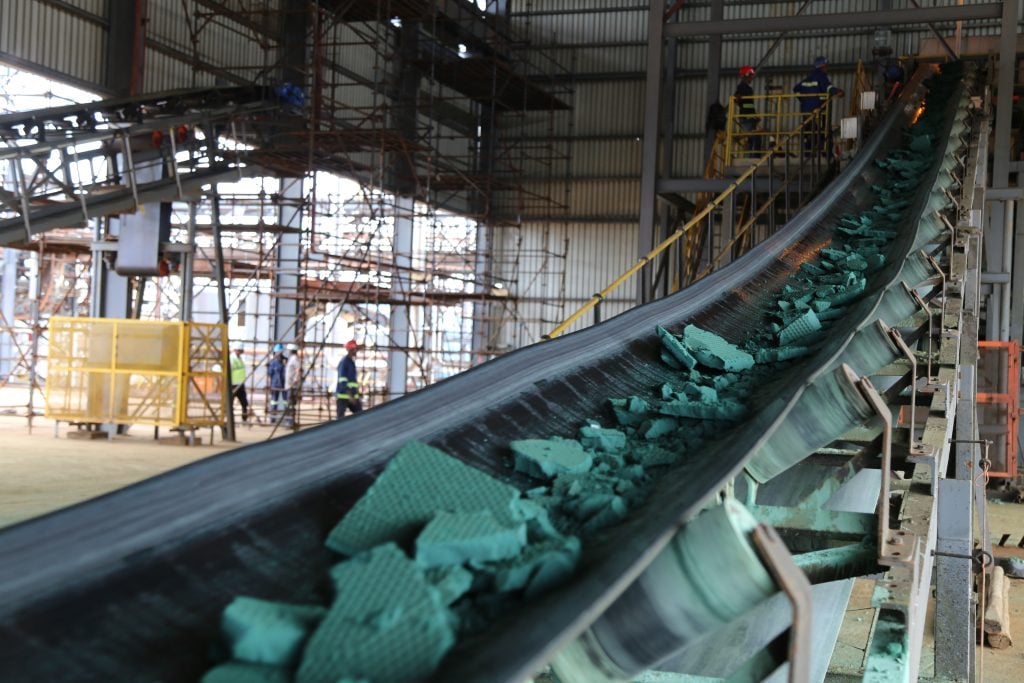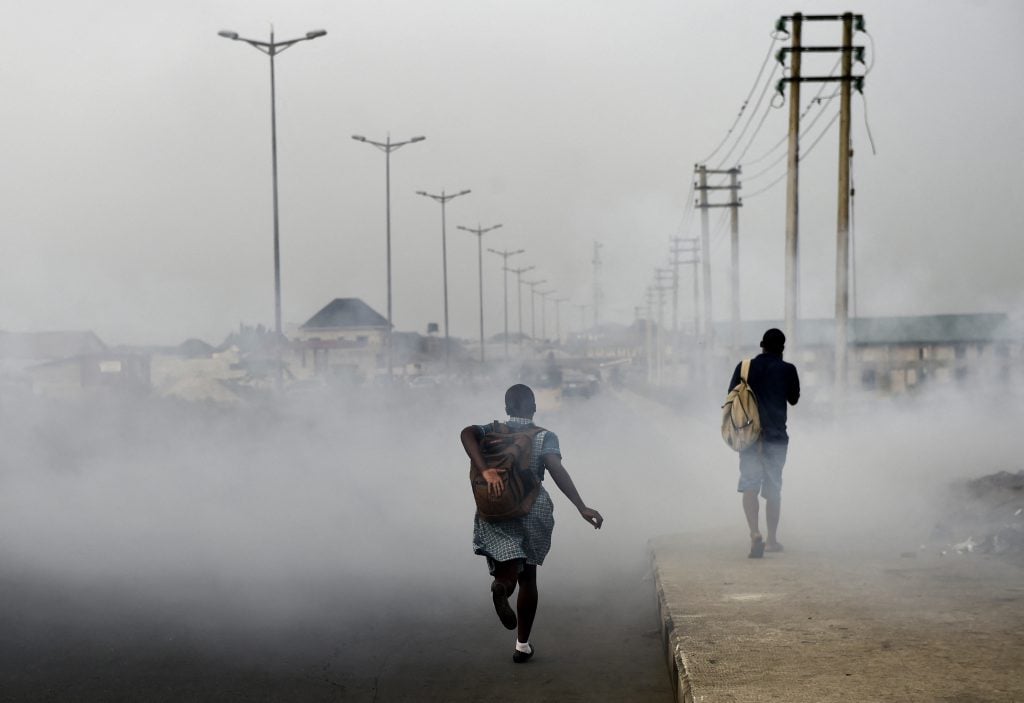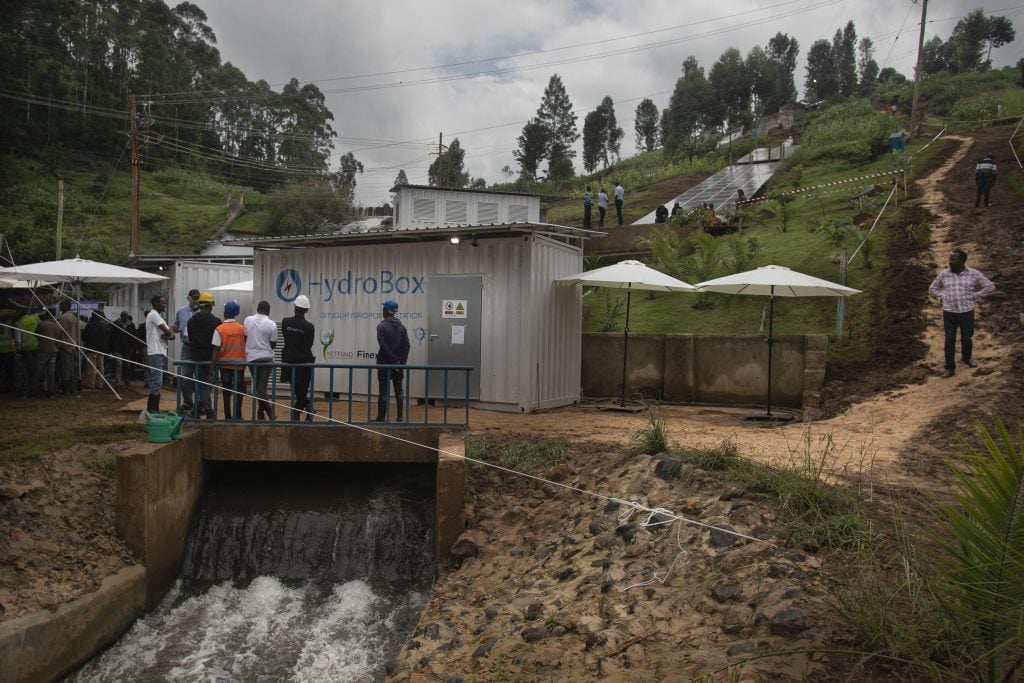
On the cracked ribbon of tarmac that snakes from the open pits of the Copperbelt to the Democratic Republic of Congo (DRC) frontier with Zambia, trucks groan under bulk bags of cobalt hydroxide, a key ingredient in the lithium-ion batteries that power the world’s smartphones and electric vehicles (EVs). Inching past weighbridges and police posts, the trucks navigate and negotiate their way through a series of checkpoints. Some are official – uniformed, armed – others merely opportunistic.
Into this messy reality, the DRC government in Kinshasa has launched a policy experiment of unusual ambition. After eight months of a surprise export ban, the government in October pivoted to the introduction of export quotas for cobalt.
The idea is simple: throttle volumes to push prices up, channel more value into the country, and compel miners to invest locally. The risk, say analysts and industry insiders interviewed by African Business, is equally clear: quotas layered atop a fragmented enforcement system could multiply the very leakages the government aims to plug. The blanket export ban was introduced earlier this year, after a market glut sent prices tumbling to about $10 a pound – but despite a limited price recovery to $15, a ban on exports was seen by many as merely a short-term fix.
Much cobalt is a byproduct of the mining of copper – the lifeblood of the country’s southern provinces. During the ban, copper output continued. “You can’t produce copper without producing cobalt,” says Jacques M’Kenna, a researcher on mineral governance for Congolese think-tank Ebuteli. “The ban was never sustainable. You can’t halt a whole sector indefinitely. Everyone expected something new – and this is it.”
Under the new quota regime, companies must pre-pay taxes before shipment and show environmental-compliance certificates. The regulator – Autorité de Régulation et de Contrôle des Marchés des Substances Minérales Stratégiques (ARECOMS) – decides tonnage quotas and can revise them monthly.
For miners, the rules have bred confusion. “A company may be told it can export 10,000 tonnes this month and have no idea about next month,” says Jean-Pierre Okenda, a governance expert at the Sentinel of Natural Resources. “That unpredictability invites negotiation – and in Congo, negotiation often means corruption.”
Rent-seekers poised to take cut
In theory, higher prices from quotas should raise state revenues. In practice, the biggest winners could be the gatekeepers. Along the route from Kolwezi through Lualaba to the Zambian border, informal checkpoints proliferate. Police, soldiers, tax agents and the so-called services techniques – state inspection units – all extract their cut. “That’s exactly where losses occur,” says M’Kenna. “Every stop becomes a tollgate for rent-seekers.”
“Depend too much on an agency’s discretion and you create power without checks,” warns Okenda. “That’s how political interference creeps in.”
Large industrial miners can navigate the red tape. Artisanal miners cannot. “The most lucrative ASM [artisanal and small-scale mining] sites are controlled by political actors,” says M’Kenna. “Ordinary miners hardly benefit.”
By restricting legal export channels, the quotas risk pushing small-scale miners further into illegality. “I’m almost sure smuggling will rise,” Okenda says. “Some intermediaries are already based in Zambia waiting to buy.”
Each procedural layer adds a new toll. Pre-payment receipts can be “lost” and environmental certificates can be expedited for a fee. Export volumes can be revised upward after “consultation”.
Okenda singles out the murky “strategic quota”. Besides baseline allocations, ARECOMS also receives a separate quota for “strategic purposes”. “No one knows how it’s calculated or who receives it,” he says. “Without transparency it risks becoming a private reserve for political networks.”
Congo’s 2018 mining code includes transparency clauses aligned with standards set by the Extractive Industries Transparency Initiative (EITI). “We have one of the most progressive mining codes in Africa,” says Okenda. “But it’s not applied. Beneficial ownership data is hidden; procurement is opaque. That’s why buyers don’t trust the supply chain.”
A fragile value-addition vision
Officials justify quotas as a step toward local value addition. The state-owned Entreprise Générale du Cobalt (EGC) – mandated to purchase artisanal cobalt – has floated refinery plans with Chinese partners, but none are currently operating. “There’s no downstream company in Congo that can process cobalt today,” Okenda says. “Maybe projects exist on paper, but we haven’t seen them.”
Cobalt hydroxide still ships to China, which refines around 70% of global supply. “EV manufacturers don’t buy from Congo directly,” M’Kenna explains. “They buy refined cobalt from China or Finland. Their leverage here is minimal.”
The political economy of enforcement
Both experts trace the failures of the cobalt value chain to political will. Soldiers still police mine sites; intelligence officers still man checkpoints. “If the president wanted to remove them, he could,” says M’Kenna. “That he hasn’t tells you everything.” When President Félix Tshisekedi took office in 2019, he vowed to “clean up” the mining sector, promising to root out the corruption and opaque deals that flourished under his predecessor, Joseph Kabila. His administration pledged tighter oversight, audits of joint ventures, and a crackdown on illegal mining. Yet six years on, the system remains largely unchanged.
“There’s a gap between what’s promised in Kinshasa and what’s happening in Kolwezi,” says M’Kenna. “Tshisekedi’s reforms never reached the checkpoints, the cooperatives, or the commanders who profit from the trade.” Artisanal miners work through “cooperatives” that are often controlled by political elites – sometimes seizing up to half of miners’ earnings.
For Okenda, reform begins with openness. “We need an impersonal regulation grounded in law, not discretion,” he argues. That means public criteria for quota allocations, publication of company lists, and independent audits.
Until that happens, the cobalt trade remains governed by what M’Kenna calls the ‘deep state of minerals’ – the tangle of officials, soldiers and intermediaries who turn regulation into rent. “The system works for them,” he says. “That’s why it doesn’t change.”
The road ahead
International buyers have limited sway. Battery makers buy from refiners, not directly from the DRC. Still, pressure for ethical sourcing is mounting. “If Congo uses quotas to clean up, the world will pay a bit more and accept it,” says M’Kenna. “If it uses quotas to monetise discretion, buyers will look elsewhere.”
Indonesia, ramping up nickel and cobalt output, looms as a competitor. Over-regulating exports could price Congo out of the green-energy supply chain it helped build.
M’Kenna and Okenda agree the quota system could succeed – if it becomes transparent. That would require real-time publication of allocations and exports, reform of checkpoints, and audits linking payments to revenue.
Otherwise, a policy meant to strengthen sovereignty may only entrench corruption. “The danger,” warns Okenda, “is that quotas become another rent to distribute, not a reform to implement.”






Recent Comments